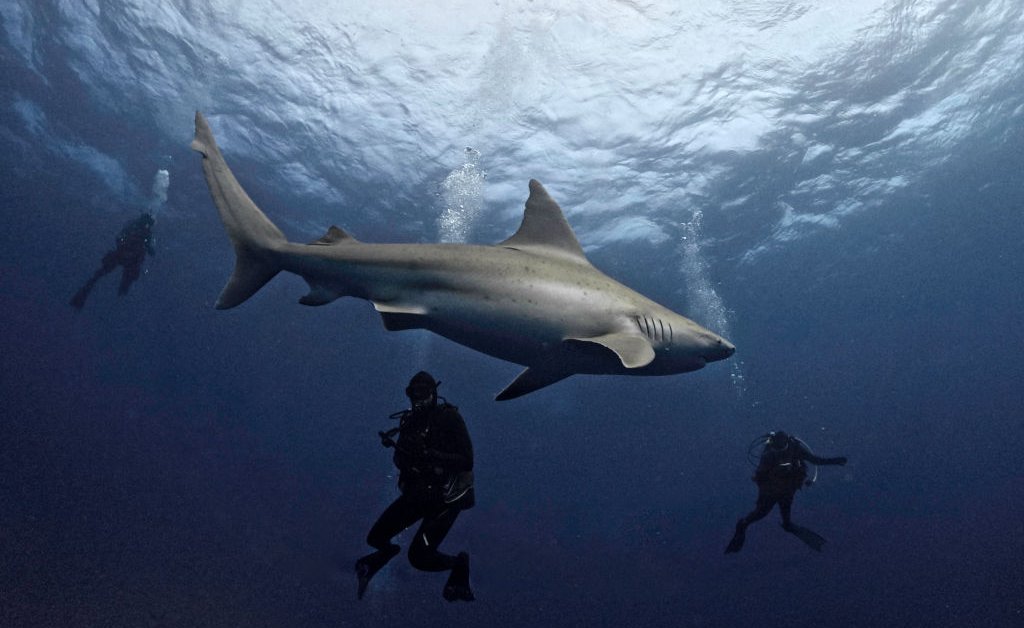"Jaws" And Its Ripple Effect: How A Movie Shaped Public Opinion On Sharks And Ocean Conservation

Welcome to your ultimate source for breaking news, trending updates, and in-depth stories from around the world. Whether it's politics, technology, entertainment, sports, or lifestyle, we bring you real-time updates that keep you informed and ahead of the curve.
Our team works tirelessly to ensure you never miss a moment. From the latest developments in global events to the most talked-about topics on social media, our news platform is designed to deliver accurate and timely information, all in one place.
Stay in the know and join thousands of readers who trust us for reliable, up-to-date content. Explore our expertly curated articles and dive deeper into the stories that matter to you. Visit Best Website now and be part of the conversation. Don't miss out on the headlines that shape our world!
Table of Contents
Jaws and its Ripple Effect: How a Movie Shaped Public Opinion on Sharks and Ocean Conservation
Summer 1975. A monstrous great white shark terrorizes a quaint New England beach town, leaving a trail of fear and carnage in its wake. This wasn't a real-life horror story, but the plot of Steven Spielberg's Jaws, a film that would irrevocably alter public perception of sharks and, surprisingly, influence the burgeoning field of ocean conservation. While the film is a cinematic masterpiece, its legacy extends far beyond the silver screen, prompting a crucial conversation about the impact of media on our understanding of the natural world.
The "Jaws" Effect: Fear and Misinformation
Jaws wasn't just a box-office smash; it sparked a global "shark phobia," or galeophobia. Suddenly, these magnificent creatures, essential to the health of our oceans, were demonized as mindless killing machines. News reports amplified this fear, often sensationalizing shark attacks and contributing to the widespread misconception of sharks as inherently aggressive man-eaters. This fear led to:
- Increased Shark Cullings: Many coastal communities, fueled by panic, implemented brutal shark culling programs, decimating shark populations with little regard for ecological consequences. This practice continues in some areas to this day, despite scientific evidence refuting the notion of sharks as indiscriminate predators.
- Misinformed Public Perception: The film's portrayal of a relentlessly aggressive shark ingrained a distorted image in the public consciousness, overshadowing the crucial role sharks play in maintaining healthy marine ecosystems. This misinformation continues to hinder conservation efforts.
- Negative Impact on Tourism: The fear generated by Jaws negatively impacted tourism in coastal areas, impacting local economies that depended on beachgoers and marine activities.
A Turning Point: From Fear to Understanding
While Jaws initially fueled negative perceptions, it also paradoxically contributed to a growing awareness of ocean conservation. The film's immense popularity brought the ocean and its inhabitants into the public spotlight, sparking a conversation – albeit initially a fearful one – about the fragility of marine ecosystems. This led to:
- Increased Funding for Marine Research: The heightened public interest, albeit sparked by fear, led to increased funding for marine research, including studies on shark behavior, population dynamics, and the importance of their role in the food chain. This research ultimately helped debunk many of the myths perpetuated by Jaws.
- Rise of Shark Conservation Organizations: Organizations dedicated to shark conservation emerged, working to educate the public, advocate for protective legislation, and counter the negative stereotypes propagated by the film. Groups like the Pew Charitable Trusts and the Shark Research Institute play crucial roles in this ongoing effort.
- Shifting Public Opinion: Over the decades, a gradual shift in public opinion has occurred. Increased scientific understanding of shark behavior, coupled with powerful documentaries and educational initiatives, is helping to counter the negative image established by Jaws.
The Enduring Legacy: A Call for Responsible Storytelling
Jaws' legacy is complex and multifaceted. It serves as a stark reminder of the power of media to shape public perception and underscores the importance of responsible storytelling when it comes to the natural world. The film's impact highlights the need for:
- Accurate Scientific Representation: Media portrayals of animals and environmental issues must be grounded in scientific accuracy to avoid perpetuating misinformation and fueling harmful actions.
- Balanced Storytelling: While dramatic narratives can be engaging, it is crucial to balance entertainment with responsible representation of the natural world, avoiding sensationalism that can lead to unintended consequences.
- Education and Conservation Efforts: Continued educational outreach and dedicated conservation efforts are crucial to correcting misconceptions and fostering a deeper understanding and appreciation for sharks and the vital role they play in maintaining ocean health.
Today, Jaws remains a cinematic landmark, but its legacy extends beyond entertainment. Its ripple effect serves as a cautionary tale and a call to action, reminding us of the responsibility we bear in shaping public perception and protecting our planet's precious marine life. Let's learn from the past and strive for a future where fear gives way to understanding, and where the ocean's magnificent creatures are celebrated, not demonized.

Thank you for visiting our website, your trusted source for the latest updates and in-depth coverage on "Jaws" And Its Ripple Effect: How A Movie Shaped Public Opinion On Sharks And Ocean Conservation. We're committed to keeping you informed with timely and accurate information to meet your curiosity and needs.
If you have any questions, suggestions, or feedback, we'd love to hear from you. Your insights are valuable to us and help us improve to serve you better. Feel free to reach out through our contact page.
Don't forget to bookmark our website and check back regularly for the latest headlines and trending topics. See you next time, and thank you for being part of our growing community!
Featured Posts
-
 Over 300 000 Ford Mach E Suvs Recalled For Potential Passenger Trapping
Jun 20, 2025
Over 300 000 Ford Mach E Suvs Recalled For Potential Passenger Trapping
Jun 20, 2025 -
 North Koreas Latest Missile Test Over A Dozen Rockets Launched
Jun 20, 2025
North Koreas Latest Missile Test Over A Dozen Rockets Launched
Jun 20, 2025 -
 Energy Investment In Virginia Fueling Economic Growth Nationwide
Jun 20, 2025
Energy Investment In Virginia Fueling Economic Growth Nationwide
Jun 20, 2025 -
 The Math Behind The Yankees Collapse Judges Slump And Diminishing Postseason Chances
Jun 20, 2025
The Math Behind The Yankees Collapse Judges Slump And Diminishing Postseason Chances
Jun 20, 2025 -
 Virginias Energy Future Key Policy Challenges For The Next Governor
Jun 20, 2025
Virginias Energy Future Key Policy Challenges For The Next Governor
Jun 20, 2025
